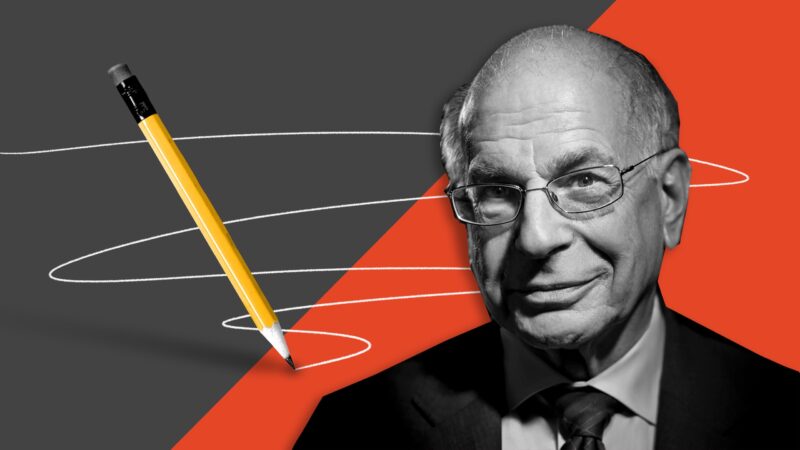The Power of Candour: Navigating Leadership, Culture, Decision-Making, Market Research, and Sensemaking
Candour—honest, straightforward communication—is a critical element in leadership, organisational culture, decision-making, and market research. When practiced effectively, candour fosters trust, collaboration, and innovation, enabling organisations to navigate challenges and seize opportunities. However, there’s a fine line between being candid and being perceived as an “asshole,” a distinction that leaders must carefully manage. Understanding how to apply candour appropriately, especially across different cultural contexts, is essential for creating a positive and productive environment.
Adding another layer to this understanding, the concept of sense-making, as explored in the book ‘Sensemaking’ by Christian Madsbjerg, provides valuable insights into how candour intersects with the process of making sense of complex and ambiguous situations. Sensemaking emphasises the importance of understanding the context and culture in which communication occurs, helping leaders and organisations make more informed and empathetic decisions.
Books such as ‘Radical Candor’ by Kim Scott, ‘The Culture Map’ by Erin Meyer, ‘No Rules Rules’ by Reed Hastings and Erin Meyer, and ‘Sensemaking’ by Christian Madsbjerg offer valuable insights into the practice of candour and its impact on various aspects of organisational life. By exploring the nuances of candour in leadership, culture, decision-making, market research, and sense-making, we can better appreciate its role in driving success while avoiding the pitfalls of overly harsh or insensitive communication.
Candour in Leadership: The Balance Between Honesty and Empathy
In leadership, candour is a powerful tool for fostering open communication and building trust within a team. A candid leader is one who provides honest, direct feedback while also showing genuine care for their team members. This approach, as articulated by Kim Scott in ‘Radical Candor’, involves balancing “caring personally” with “challenging directly.” Leaders who master this balance create an environment where team members feel supported and motivated, even when receiving difficult feedback.
Candour in leadership is about more than just being honest; it’s about delivering truth in a way that is constructive and helps others grow. A leader who practices radical candour does not shy away from tough conversations but ensures that these conversations are framed with empathy and respect. This approach encourages a culture of continuous improvement, where team members feel empowered to take risks, learn from their mistakes, and contribute their best efforts.
However, the challenge for leaders lies in navigating the fine line between being candid and being an asshole. While a candid leader aims to help their team improve, an asshole leader often delivers feedback in a way that is unnecessarily harsh, critical, or dismissive. This type of leader may justify their behaviour by claiming they are just “telling it like it is,” but in reality, their approach can damage morale, stifle creativity, and breed resentment within the team.
Candour in Organisational Culture: Building Trust and Collaboration
Candour is not just a leadership trait; it is also a foundational element of a strong organisational culture. In environments where candour is valued and practiced, teams are more likely to engage in open communication, collaborate effectively, and innovate. Candour helps to build trust, as team members know they can rely on each other to be honest and transparent.
Reed Hastings and Erin Meyer, in ‘No Rules Rules’, highlight how Netflix’s culture of candour has been integral to its success. At Netflix, candour is encouraged at all levels, with employees regularly providing and receiving feedback. This feedback culture is built on the belief that honest communication drives innovation and performance by quickly identifying and addressing issues. When employees feel safe to express their thoughts and concerns, organisations can move more swiftly and effectively toward their goals.
However, fostering a culture of candour requires careful consideration of how feedback is delivered and received. A culture that emphasises candour without empathy can quickly become toxic, leading to fear and disengagement. To avoid this, organisations must ensure that candour is practiced within a context of mutual respect and care. Leaders and team members alike should be trained to give feedback that is specific, actionable, and delivered with the intent to help others succeed.
Candour in Decision-Making: Ensuring Informed and Balanced Choices
In decision-making, candour is crucial for ensuring that all relevant information is considered and that diverse perspectives are openly discussed. In environments where candour is practiced, team members are more likely to voice dissenting opinions or raise concerns, leading to more informed and balanced decisions.
Candour helps to prevent the escalation of commitment to failing strategies. When team members feel safe to voice their concerns, organisations can pivot more effectively, avoiding costly mistakes and ensuring that decisions are aligned with the company’s goals and values. This open dialogue allows for better risk management and more innovative solutions.
Netflix’s commitment to candour in decision-making, as described in ‘No Rules Rules’, exemplifies how this approach can lead to better outcomes. By encouraging open debate and constructive disagreement, Netflix avoids the pitfalls of groupthink and makes decisions based on the best available information rather than consensus alone. This process fosters a culture of accountability and agility, enabling the company to remain competitive in a rapidly changing market.
Candour in Market Research: Gaining Genuine Insights
Candour is also essential in market research, where honest feedback from consumers, employees, and other stakeholders is crucial for understanding the true market landscape. Without candour, research findings can be skewed by social desirability bias, where respondents provide answers they believe are expected rather than their true opinions.
Achieving candour in market research can be challenging, particularly in cultures that are less direct in their communication. Erin Meyer’s ‘The Culture Map’ offers insights into how different cultures approach communication, which is especially relevant in global market research. For instance, in high-context cultures like Japan or China, people may be less likely to provide direct negative feedback, making it important for researchers to read between the lines and create environments where respondents feel comfortable being honest.
In contrast, in low-context cultures like the United States or Germany, directness is more common, and respondents may be more forthcoming with their opinions. Understanding these cultural nuances is crucial for interpreting research findings accurately and ensuring that market strategies are based on genuine insights. By recognising and adapting to these differences, organisations can gather more accurate data and develop strategies that resonate with diverse audiences.
Sense-making: Enhancing Candour Through Contextual Understanding
The concept of sense-making, as explored in Christian Madsbjerg’s ‘Sensemaking’, adds another dimension to the practice of candour. Sense-making is the process of interpreting and understanding complex, ambiguous situations by considering the broader context, culture, and human experiences involved. It emphasises the importance of looking beyond data and facts to grasp the underlying meanings and narratives that shape people’s behaviours and decisions.
Incorporating sense-making into the practice of candour means that leaders and organisations must not only be honest and direct but also deeply aware of the context in which their communication takes place. This includes understanding the cultural, emotional, and historical factors that influence how messages are received and interpreted.
For example, when giving feedback or making decisions, a leader who practices sense-making will consider the unique circumstances of the individuals involved, the organisational culture, and the broader societal context. This approach ensures that candour is not just about delivering the truth but about delivering it in a way that resonates and is meaningful to the people involved.
Sense-making also enhances market research by encouraging researchers to delve deeper into the cultural and contextual factors that shape consumer behaviour. Instead of relying solely on quantitative data, sense-making involves engaging with the qualitative aspects of human experience—stories, symbols, and social dynamics—that provide richer, more nuanced insights. This approach can lead to more effective marketing strategies that truly connect with consumers on a human level.
Global Cultural Differences in Candour: Navigating Communication Across Borders
Cultural differences significantly influence how candour is perceived and practiced. ‘The Culture Map’ by Erin Meyer is a valuable resource for understanding these differences. Meyer explains that cultures vary in their communication styles, with some favouring direct communication and others preferring a more nuanced, indirect approach.
For example, in cultures like the Netherlands or Israel, candour is often seen as a sign of respect and transparency. In these cultures, being direct is equated with honesty and integrity. On the other hand, in cultures like Japan or Indonesia, where harmony and face-saving are highly valued, directness can be perceived as rude or disrespectful. In such contexts, candour must be balanced with tact and an understanding of the cultural emphasis on maintaining positive relationships.
These cultural differences also extend to the workplace. In multicultural teams, understanding and navigating these differences is essential to foster effective communication and collaboration. Meyer suggests that leaders should adapt their communication style to the cultural context, ensuring that candour is practiced in a way that is respectful and effective within each specific environment.
Candour is a powerful tool in leadership, organisational culture, decision-making, and market research. However, the practice of candour requires a careful balance between honesty and empathy, an awareness of cultural differences, and a deep understanding




